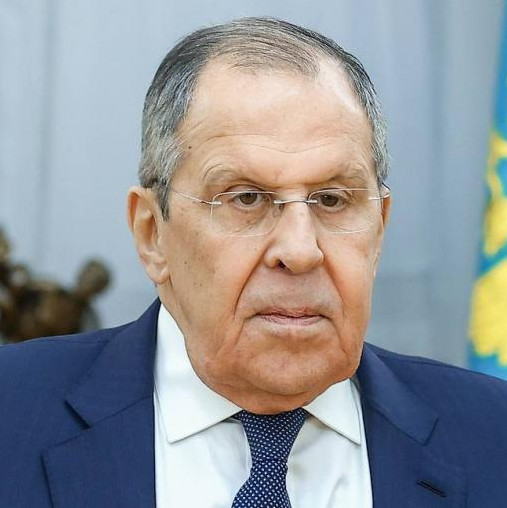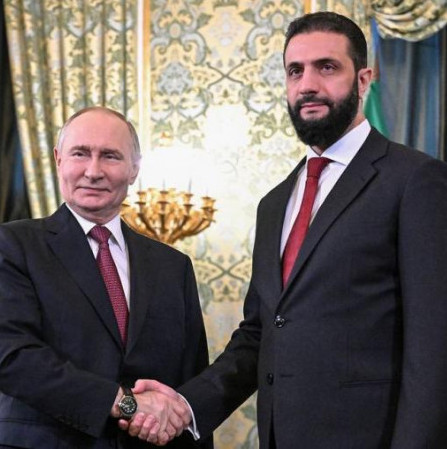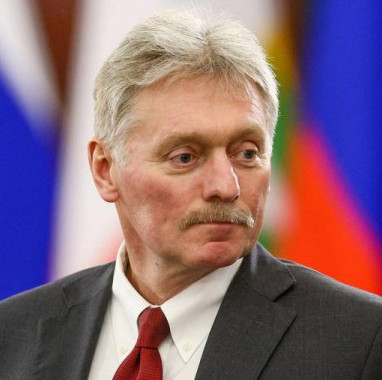Kabul persistently sends signals that its aspiration to the Community of Independent States is not illusive. The Afghan delegation attended already four sessions of the CIS Parliamentary Assembly. Yet without right of vote. On the eve of the latest CIS Summit in St.-Petersburg Secretary General of the Parliamentary Assembly Mikhail Korotkov publicly told on Afghanistan’s aspiration to join the Community.
Experts recognize that this idea actually is not as populist as it may look at first sight. Obviously, war-worn Kabul suffering from own terrorist attacks and drug trafficking needs any foreign assistance and support to sustain any life. It failed to get it from the USA and NATO and looking for new allies just to survive.
Default of the donor-states is not only a factor just irritating the Kabul authorities. According to the data recently published by the Afghan Assistance Coordination Agency, the country failed to receive about 40 per cent of promised assistance to “democratization” totaling 25 billion Dollars. Approximately 40 per cent of 15 billion Dollars received by Afghan addressees were spent on salaries and fees to Western contractors and their employees. Besides, Afghan officials recognize that they cannot account for 2.5 billion Dollars received within the framework of this assistance.
The picture is black as ink. The Afghan people are under-funded, they are actually cheated. It is not surprisingly that lots of people in Afghanistan are disappointed with the developing processes. This disappointment provoked occurrence of a new generation of Islamic combatants, revival of Taliban and escalation of drug trafficking. All this was discussed at the Bucharest Summit of the North Atlantic Alliance. But it is understandable that Brussels and Washington are concerned with internal problems of Afghanistan less than with their own geopolitical interests in the region therefore the NATO strategists mainly discussed the need to send additional contingents, and their strength.
It will take much time to list all problems of contemporary Afghanistan and reveal their causes. To this end, it is necessary to return to the past minimum several decades ago. Joining the CIS automatically entails development of transport infrastructure, investments of the CIS countries in the national economy, military and technical cooperation, and development of cultural and educational ties. Undoubtedly, the game is worth the candle for Kabul. But does the CIS need all these problems moreover it experiences a period of political stress?
In terms of Community development strategy Afghanistan is surely an important and needful ally. At least because after joining of Kabul to the CIS, a “free” field of a big political game vanishes in the region. In case of gaining and maintaining control over this area the CIS would get not so bad guarantees of stability at its boundaries. However, at the same time, Afghanistan is not “the easiest” neighbor. It is a very troublesome and responsible mission to make the process of integration successful. And taking into account even a part of internal Afghan problems, may be it is wise to think if the game is worth the candle for us.
In the mid 90s of the last century after a number of the Central Asian states became independent, the situation at the border with Afghanistan started radically deteriorating. Establishment of Taliban power in Afghanistan created a real threat to stability of internal political situation in the Central Asian countries, that caused serious concerns of their closest neighbors, Russia and China, and opend the regions to the West for implementation of its ambitions, Actual lack of protected Afghanistan-Central Asia border, penetration of Islamic terrorists from Afghanistan and escalation of drug trafficking led the states of Central Asia, Russia and China to a conclusion to consolidate efforts to meet the challenge. In 1996, at the Shanghai Summit the heads of five states: China, Russia, Kazakhstan, Tajikistan and Kirgizia laid down the foundation for multilateral cooperation that in time developed into the Shanghai Cooperation Organization.
A prime mission of that time “The Shanghai Five” was provision of cross-border security. Further, the scope of cooperation expanded and included such important problems as combating the organized criminality, drug trafficking, international terror as well cooperation in the spheres of economy, power-engineering and foreign policy.
It’s no need to look for any implication in our reference to the SCO in the context of Afghanistan’s aspirations to the CIS. Just it’s incorrect to omit the Shanghai Cooperation Organization when speaking about striving of Kabul for integration and studying possible prospects thereof. Frankly speaking, Afghanistan strives for close cooperation with it neighbors first of all to solve its internal problems. Kabul does not care at what expense they will be solved. No need to forget about the initial aspirations of the Afghan leaders to cooperate with the West. Now when the EU considers it expensive to further support “the American democracy” in Afghanistan, when the Brussels HQ is not in a hurry to elaborate a common opinion, and when Kabul itself assesses opportunities to play in other political field, it is necessary to determine to what extent the CIS membership aspiration meets the objective needs of the time and try to take into account the interests of all concerned parties.
Experts recognize that this idea actually is not as populist as it may look at first sight. Obviously, war-worn Kabul suffering from own terrorist attacks and drug trafficking needs any foreign assistance and support to sustain any life. It failed to get it from the USA and NATO and looking for new allies just to survive.
Default of the donor-states is not only a factor just irritating the Kabul authorities. According to the data recently published by the Afghan Assistance Coordination Agency, the country failed to receive about 40 per cent of promised assistance to “democratization” totaling 25 billion Dollars. Approximately 40 per cent of 15 billion Dollars received by Afghan addressees were spent on salaries and fees to Western contractors and their employees. Besides, Afghan officials recognize that they cannot account for 2.5 billion Dollars received within the framework of this assistance.
The picture is black as ink. The Afghan people are under-funded, they are actually cheated. It is not surprisingly that lots of people in Afghanistan are disappointed with the developing processes. This disappointment provoked occurrence of a new generation of Islamic combatants, revival of Taliban and escalation of drug trafficking. All this was discussed at the Bucharest Summit of the North Atlantic Alliance. But it is understandable that Brussels and Washington are concerned with internal problems of Afghanistan less than with their own geopolitical interests in the region therefore the NATO strategists mainly discussed the need to send additional contingents, and their strength.
It will take much time to list all problems of contemporary Afghanistan and reveal their causes. To this end, it is necessary to return to the past minimum several decades ago. Joining the CIS automatically entails development of transport infrastructure, investments of the CIS countries in the national economy, military and technical cooperation, and development of cultural and educational ties. Undoubtedly, the game is worth the candle for Kabul. But does the CIS need all these problems moreover it experiences a period of political stress?
In terms of Community development strategy Afghanistan is surely an important and needful ally. At least because after joining of Kabul to the CIS, a “free” field of a big political game vanishes in the region. In case of gaining and maintaining control over this area the CIS would get not so bad guarantees of stability at its boundaries. However, at the same time, Afghanistan is not “the easiest” neighbor. It is a very troublesome and responsible mission to make the process of integration successful. And taking into account even a part of internal Afghan problems, may be it is wise to think if the game is worth the candle for us.
In the mid 90s of the last century after a number of the Central Asian states became independent, the situation at the border with Afghanistan started radically deteriorating. Establishment of Taliban power in Afghanistan created a real threat to stability of internal political situation in the Central Asian countries, that caused serious concerns of their closest neighbors, Russia and China, and opend the regions to the West for implementation of its ambitions, Actual lack of protected Afghanistan-Central Asia border, penetration of Islamic terrorists from Afghanistan and escalation of drug trafficking led the states of Central Asia, Russia and China to a conclusion to consolidate efforts to meet the challenge. In 1996, at the Shanghai Summit the heads of five states: China, Russia, Kazakhstan, Tajikistan and Kirgizia laid down the foundation for multilateral cooperation that in time developed into the Shanghai Cooperation Organization.
A prime mission of that time “The Shanghai Five” was provision of cross-border security. Further, the scope of cooperation expanded and included such important problems as combating the organized criminality, drug trafficking, international terror as well cooperation in the spheres of economy, power-engineering and foreign policy.
It’s no need to look for any implication in our reference to the SCO in the context of Afghanistan’s aspirations to the CIS. Just it’s incorrect to omit the Shanghai Cooperation Organization when speaking about striving of Kabul for integration and studying possible prospects thereof. Frankly speaking, Afghanistan strives for close cooperation with it neighbors first of all to solve its internal problems. Kabul does not care at what expense they will be solved. No need to forget about the initial aspirations of the Afghan leaders to cooperate with the West. Now when the EU considers it expensive to further support “the American democracy” in Afghanistan, when the Brussels HQ is not in a hurry to elaborate a common opinion, and when Kabul itself assesses opportunities to play in other political field, it is necessary to determine to what extent the CIS membership aspiration meets the objective needs of the time and try to take into account the interests of all concerned parties.


